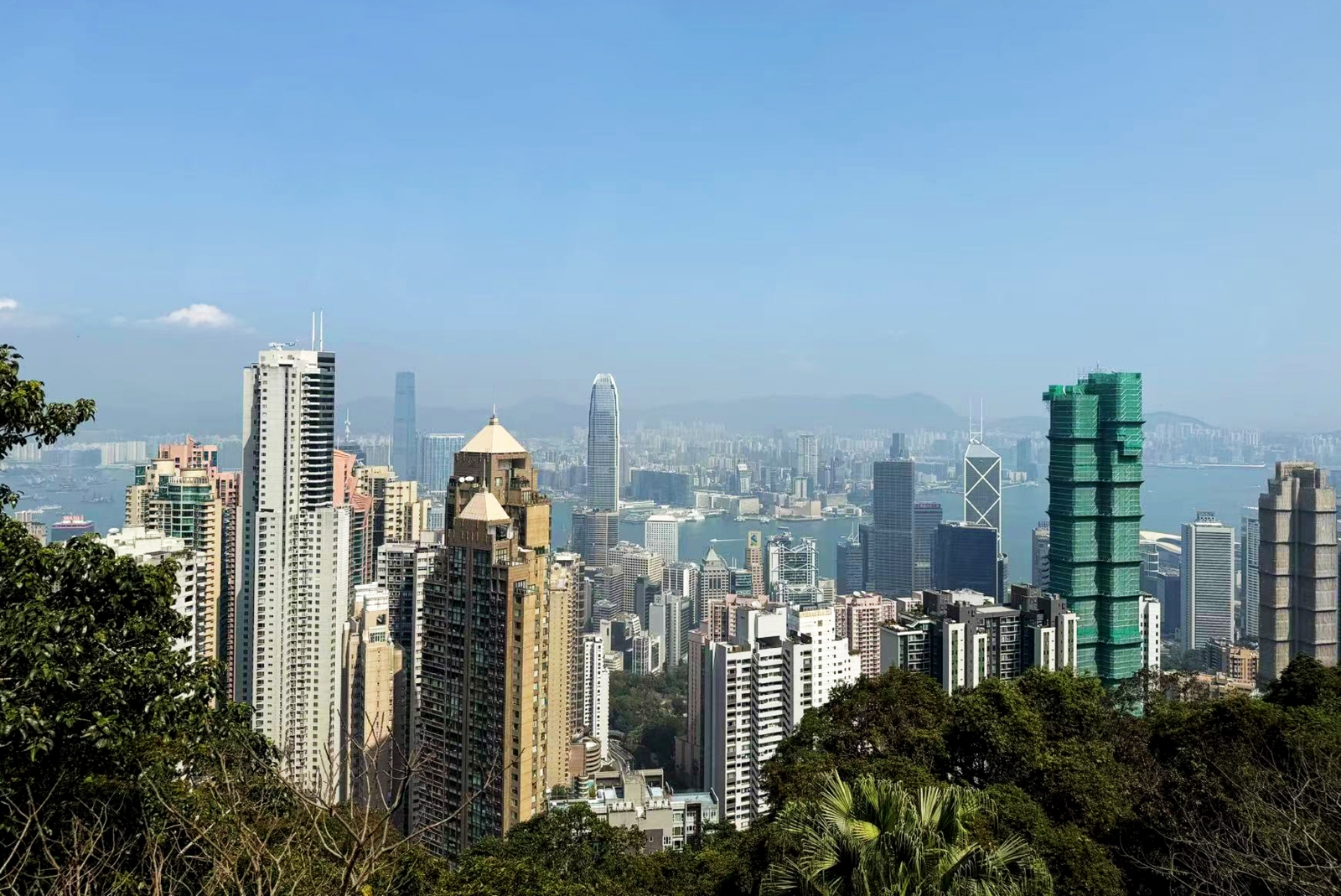
Dalal AlGhawas, a Singapore-based Kuwaiti businesswoman and Hong Kong permanent resident, said she has directly benefited from Hong Kong’s expertise in capacity building in food biotechnology, commercialization, and finance.
In an interview with China Daily, the founder and CEO of agrifood consultancy and trading company SWAPAC highlighted the Hong Kong Special Administrative Region’s “significant strengths” in logistics, infrastructure, and technological innovation, which present valuable opportunities for Middle East small and medium-sized enterprises.
Amid Hong Kong Chief Executive John Lee Ka-chiu’s ongoing visit to Kuwait and Qatar, which began on Saturday, AlGhawas called for enhanced dialogue across key economic sectors, viewing it as crucial to fostering mutual understanding and cooperation.
READ MORE: HKSAR seeks to ink free-trade deals with Gulf nations
Citing her decadelong experience in Hong Kong, she said she observed “a significant barrier” in the current communications and public relations between Hong Kong and the Asia-Pacific and Gulf Cooperation Council countries.
“While there’s curiosity about the GCC, familiarity remains low, often accompanied by outdated preconceptions,” she said. In the meantime, “GCC citizens generally hold positive views of Hong Kong and the Chinese mainland, influenced by cinema and social media”.
AlGhawas said that Hong Kong “stands as a premier financial hub in Asia”, citing its free-market economy, independent legal and financial systems, and bilingual official languages as key advantages for Middle East investors. She also cited support from local investment-promotion agencies, saying that “entities can leverage InvestHK’s support for incorporation in Hong Kong, with nonresidents eligible to be directors”.
She added that the Guangdong-Hong Kong-Macao Greater Bay Area — with Hong Kong, Shenzhen and Guangzhou as core cities — ranks among the world’s top science and technology clusters.
“Kuwaiti SMEs, for instance, can tap into this expertise to develop solutions as the region diversifies beyond oil and gas,” AlGhawas said.
Khaled A Mahdi, former secretary-general of Kuwait’s Supreme Council for Planning and Development, said Kuwait’s Vision 2035 — the nation’s economic diversification plan — and China’s Belt and Road Initiative are “aligned in principle”.
However, he added, joint ventures often face legal and procedural challenges
READ MORE: HK eyes great gains as gateway for mainland’s Middle East trade
“Harmonizing investment rules and streamlining approval processes could significantly ease market entry on both sides,” said Mahdi, who is also an associate professor of chemical engineering at Kuwait University.
“Hong Kong, as a global financial center, remains underutilized in the China-Kuwait corridor. There’s real opportunity for growth in areas like renminbi-based trade settlement and capital market access,” Mahdi told China Daily.
“Connectivity is another challenge. With few direct shipping routes and limited digital infrastructure linking the two nations, logistical inefficiencies persist. Hong Kong’s logistics expertise could help bridge this gap,” he added.
“Ultimately, deeper economic ties will depend on institutional cooperation, private-sector engagement, and shared innovation platforms. This is not a gap in goodwill — it’s a call for action.”
Mahdi added that with focused coordination, Hong Kong, the mainland, and Kuwait can pioneer a new model of high-quality, cross-regional economic partnership.
He highlighted China’s “unmatched manufacturing capacity” as an opportunity for Kuwaiti entrepreneurs. “By leveraging China’s cost-efficient production, advanced technology, and vast supply chains, Kuwaiti SMEs can transform ideas into market-ready products,” he said.
“Joint ventures and BRI partnerships enable local businesses to scale rapidly, accessing global markets while strengthening Kuwait’s economic diversification.”
David Gibson-Moore, president and CEO of Gulf Analytica — a business management consultancy based in Dubai, the United Arab Emirates — praised Lee’s visit to Kuwait and Qatar as “ideally timed to coincide with a broader realignment in global trade”.
ALSO READ: Hong Kong must embrace Middle East’s opportunities
“This visit dovetails with the broader emergence of the trilateral trading framework between China, the GCC, and the Association of Southeast Asian Nations that is becoming increasingly central to the global economy,” he said.
He said that the city’s reputation as a financial, technological, and innovation hub “aligns well” with the ambitions of the Gulf nations now actively diversifying away from hydrocarbons.
“As the geopolitical center of gravity shifts, Hong Kong is also positioning itself as a strategic bridge between China and the increasingly diversified Gulf economies,” he said. The city is ideally positioned to channel investment and technology into the Gulf while also opening doors for Gulf capital and companies to access Asia’s most dynamic growth markets, he added.
Contact the writer at jan@chinadailyapac.com


